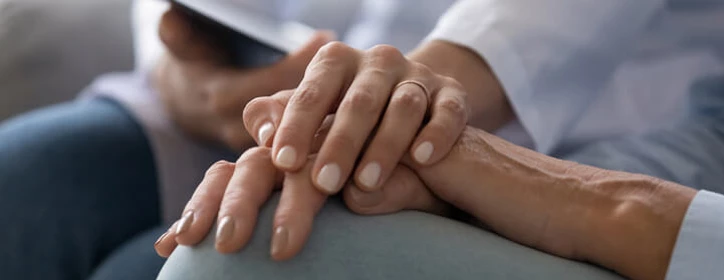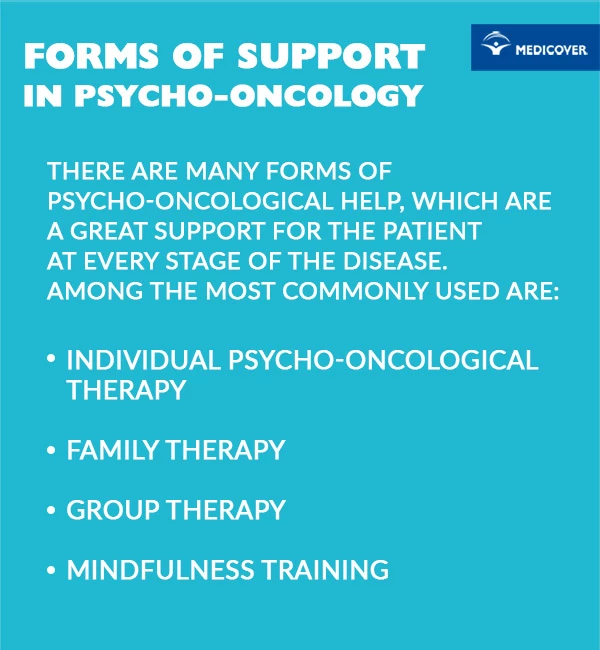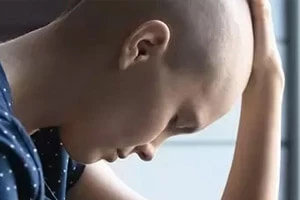Cancer is the second, after cardiovascular disease, leading cause of death in Poland and in the world. Every year there are more and more cases, and the aging of the population contributes to this. The diagnosis of cancer causes an emotional crisis in most patients. There is fear, sadness, and sometimes anger and disbelief. Stress and excessive emotions accompanying the disease, in turn, weaken the immune system, which in turn becomes an obstacle on the way to recovery.
PSYCHOLOGIST CONSULTATION. BUY

Table of contents:
- Why is psychological support so important?
- Individual psycho-oncological therapy
- Family Therapy
- Group Therapy
- Minderness Training
- Summary
Why is psychological support so important?
Cancer is a crisis situation in the life of every patient. Psychological support is one of the key aspects of treatment and therefore it should be a permanent element of therapy - at every stage of it. It is impossible to provide good cancer care without taking into account the patient's psychosocial health needs. Their satisfaction is an integral part of high-quality such care.
Psychological help in oncology is used to support the patient emotionally and reduce their stress level. A psycho-oncologist should create a sense of security and belonging in the patient and develop behaviors with him that will help him overcome the difficulties and crisis associated with the disease. In order for psychological help to be effective, its type and size should be appropriately tailored to the needs and capabilities of the patient.

Individual psycho-oncological therapy
Individual psycho-oncological therapy is considered to be one of the best forms of support. It consists in a conversation that helps to collect key information and gives space for the patient to share their doubts and fears related to oncological treatment. It also helps to face the consequences of the disease. patient to the changes that may occur in his life, and makes it easier to accept them. Individual therapies allow you to focus full attention on the patient and choose the right methods to work with him. Thanks to psycho-oncological therapy, the patient increases self-confidence, which in turn affects his self-awareness and helps to find himself in the realities of the disease and in the health care system.
Family Therapy
Cancer changes the functioning of the whole family. Sudden information about the illness of a loved one affects not only the life of the patient, but also his immediate surroundings. The family begins to need support both in formal and psychological matters. There are questions: How to help a person suffering from cancer? How to talk to them? But also - and equally important: How to take care of your own mental health?
In the face of the disease, not only the patient has to learn to function again in the situation in which he found himself. His immediate family and friends also need to learn this.
Group Therapy
Group therapy allows patients to share their experiences and feelings about their illness both during treatment and after recovery. Patients in their own group begin to feel safe and stop feeling lonely. Co-experiencing helps both the patient and his family.
Minderness Training
Mindfulness training, colloquially referred to as "Mindfullness", is also a very effective method when working with people suffering from oncology. This type of support teaches patients to focus their attention on the here and now. The practice of mindfulness also allows you to develop an appropriate breathing technique that helps you fight pain in the healing process. People who are more focused on the current moment, their thoughts, sensory experiences and feelings, and what is happening around them, maintain their health in better shape than people who do not have such developed self-awareness.
Summary
Psycho-oncology deals with the psychological dimension of cancer. More precisely: psychological reactions to cancer at all its stages and psychological, behavioral and social factors that can affect the treatment process. Where to go for help? When to inform loved ones? How to cope during illness? Who is a psycho-oncologist and why is he so important? Many patients are looking for answers to these and many other questions every day. Medicover, as a company that cares about the well-being and health of the patient, provides comprehensive psycho-oncological care to every patient who needs support. With us, patients will find help for themselves and their families both during the disease and after recovery. In order to prepare for the fight against cancer and function in social life after recovery, it is necessary to identify the psychosocial needs of patients. This is essential. Psycho-oncological intervention reduces their psychological burden and improves their quality of life - it is better compared to the quality of life of patients who receive only standard support. |
CANCER - PSYCHOLOGICAL HELP:
Fear while waiting for an oncological diagnosis - how to deal with it?
Cancer diagnosis and what next? How not to get lost in emotions
How to get used to cancer? The road to acceptance of cancer
How do you talk to your loved ones about your cancer?







